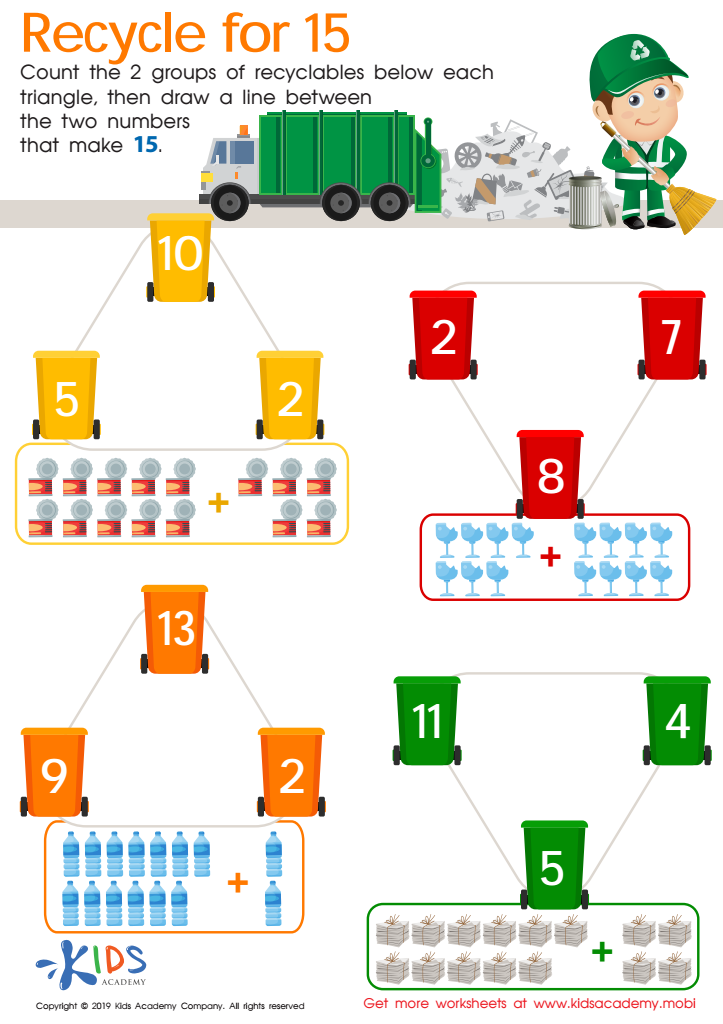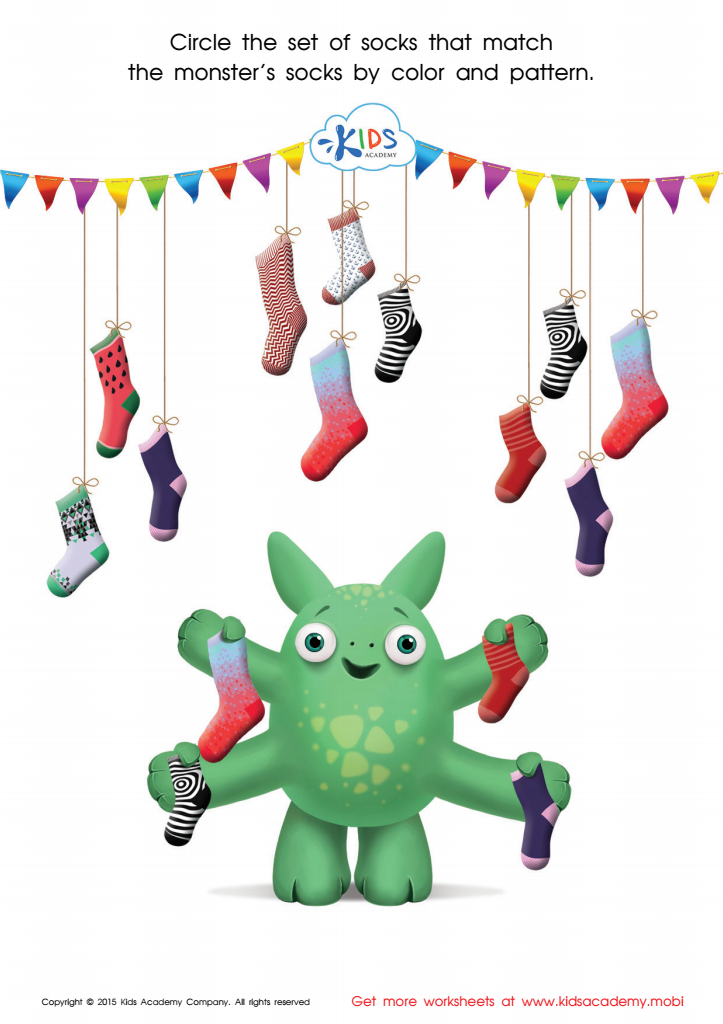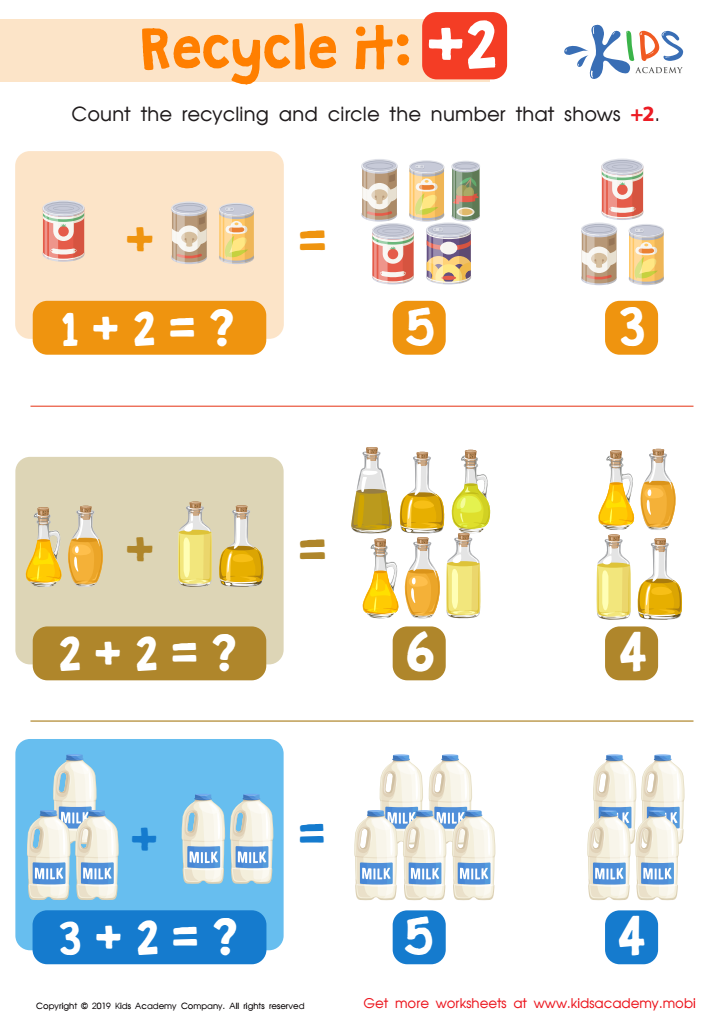Sorting skills Addition & Subtraction Worksheets for Ages 5-7
5 filtered results
-
From - To
Enhance your child's mathematical journey with our Sorting Skills Addition & Subtraction Worksheets designed specifically for ages 5-7. These engaging worksheets help young learners develop essential sorting skills while practicing fundamental addition and subtraction concepts. Children will categorize objects, numbers, or pictures, making math fun and interactive. Each activity encourages critical thinking and reinforces number recognition, fostering a solid foundation in early math skills. Perfect for both classroom use and at-home learning, these worksheets are ideal for nurturing your child’s confidence and competence in mathematics. Promote learning through play with our colorful, easy-to-follow, and educational resources today!


Recycle for 15 Worksheet


Sort the Monster's Socks Worksheet


Recycle It: +2 Worksheet
Sorting skills in addition and subtraction are crucial for children aged 5-7 as they form the foundation for mathematical understanding and critical thinking. At this stage, children begin to grasp basic numerical concepts, and sorting provides an engaging way to recognize patterns, relationships, and properties of numbers.
When children sort objects based on criteria like color or size and then relate those categories to addition and subtraction, they develop a mental framework for organizing numbers. This process enhances their problem-solving ability, allowing them to see the connections between different mathematical concepts. For example, by arranging objects in groups, children can better understand how numbers can be combined or taken away, which aids in the development of fluency in basic operations.
Moreover, sorting encourages important cognitive skills, such as classification and organization, which can be transferred to other academic areas. Teachers and parents who emphasize sorting alongside addition and subtraction not only make learning more interactive but also foster a love for math. In an environment where these skills are nurtured, children feel more confident and prepared for future mathematical challenges. Thus, supporting sorting skills during these formative years cultivates a strong foundation for lifelong learning in mathematics.
 Assign to My Students
Assign to My Students


















